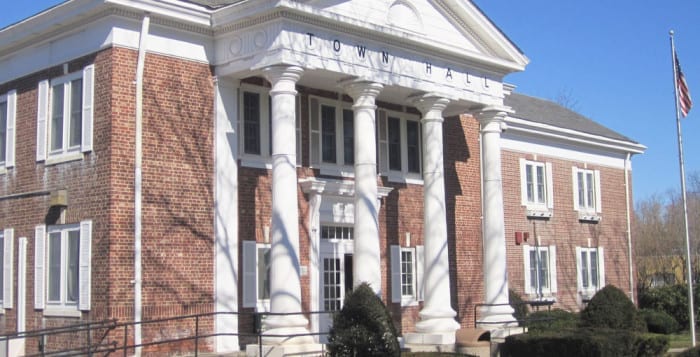Smithtown board amends public comment policy
The Smithtown Town Board is changing the way it allows the public to speak during its regular meetings.
The board voted 4-0 at its Nov. 19 meeting to amend Chapter 76 of the town code, which regulates public participation at town meetings, adding a three-minute limit to remarks and restricting the sharing of that time with other speakers. In an interview, Smithtown Supervisor Pat Vecchio (R) said the amendments were borne out of the nature of recent Town Board meetings in which some speakers spoke aggressively or with hyperbole.
“Members of the public and Board members shall be allowed to state their positions in an atmosphere free of slander, threats of violence, or disorderly conduct which disturbs the peace and order of the board meeting,” the amendment said.
Councilman Ed Wehrheim (R) was not present at the meeting.
According to the amendment, speakers must submit their names to the town clerk before a meeting if they wish to speak, while also specifying what they will be commenting on. The speakers will be allotted three minutes, which starts at the beginning of their remarks and includes any time that passes during questioning or colloquy, the amendment said. That time cannot be shared with other speakers.
Over the last several years, residents often approached the board with specific concerns, oftentimes directed at council members who serve as liaisons to specific departments. But now, those kinds of concerns cannot be directed solely at a specific member of the board, as the amendment said that remarks could only be addressed to the board as a body, and speakers cannot mention any specific member.
The new additions to the town code also included a chance for board members to warn speakers that they may be cut off at any time if they violate the new rules.
“Any person making offensive, insulting, threatening, insolent, slanderous or obscene remarks or who becomes boisterous or who makes threats against any person or against public order and security during a Board meeting or engages in any disorderly conduct which disturbs or disrupts the orderly conduct of any meeting shall be called to order by the presiding officer,” the amendment said. “If, after receiving a warning from the presiding officer, a person persists in violating the rules of decorum, the presiding officer may order that person to leave the meeting.”







